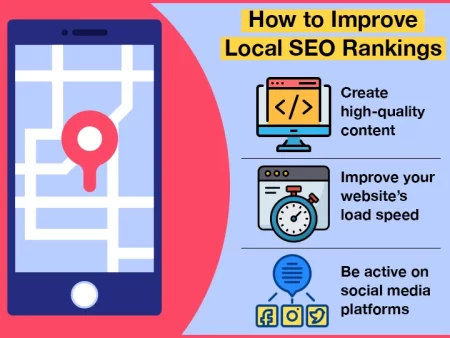 To ensure that your dental practice shows up in the SERPs (search engine results pages), you’ll need to engage in local SEO (search engine optimization). This requires you to do some dental SEO work on your website. There are several ways in which this can be done.
To ensure that your dental practice shows up in the SERPs (search engine results pages), you’ll need to engage in local SEO (search engine optimization). This requires you to do some dental SEO work on your website. There are several ways in which this can be done.
What is local SEO, and why is it important?
Local dentist SEO helps you optimize your site for a local audience. The best way to do this is by creating a page on your website for each area that you serve. This allows you to attract local users for cities near you by ranking for terms like “Tampa, Florida, dentists.” There are also other ways in which this is done (e.g., getting listed in local business directories and creating a Google Business Profile).
The more you’re seen, the more educated you look. This will make people feel more comfortable using your services. Since you’re specifically targeting people near you to share your knowledge with, the more likely, they’ll be to engage with your business. This is why local dentist SEO is vital.
How do you improve local SEO?
Now that you know about the importance of dentist SEO, you’re probably wondering what some of the best practices are for improving it. Here are a few things that you can do:
- Create high-quality content that contains keywords that are relevant to your practice. Make sure that it’s easily accessible, readable, and indexable. This content should be engaging enough to keep them on your website but also easily understandable, or they won’t stick around or return.
- Improve your website’s load speed and make sure that it’s mobile-friendly. These factors play a vital role in dentist SEO because search engine algorithms take them into account for ranking purposes. Of course, you also want it to be easy for people to navigate your site and get what they want.
- Make sure that you’re active on various social media platforms. While you may have great local SEO, if your social media profiles are inactive, it’ll reduce your credibility. Your visitors want to know what’s going on and that others respect you enough to follow you.
- Utilize your Google Business Profile and any other high-quality local directories you find. Being present in these places isn’t only good for your local SEO efforts, but it also shows that you’re reputable.
- Always conduct competitive analysis and market research, so your practice remains ahead of your competition. Knowing what your competition’s SEO strategy is and doing this while also taking advantage of those areas in which they’re falling short will enable you to rank higher. This may be as simple as finding a blog post that they don’t have and creating one for your site.
What keywords and phrases should you target?
When planning your local SEO strategy, you’ll need to have a list of 5 – 10 keywords you’ll want to target so that you’re likelier to rank for at least one of them. Be on the lookout for pertaining to your practice that isn’t pertinent to other practices in your area (e.g., services you offer that other practices don’t offer). Here you’ll find two different subsets of keywords that you can work with. These are:
- Short-tail keywords are search queries that only contain a few words. Thus, they’re considered broad and generic.
- Long-tail keywords are used when conducting a more specific search. Typically, these searches are worded as questions that are at least 4 words long.
While you can do your own dentist SEO, you’ll get better results by working with us at the Affordable SEO Company Tampa in Clearwater, FL. We have years of experience we look forward to putting to work for you.
